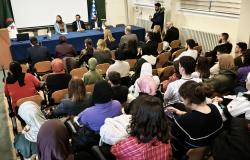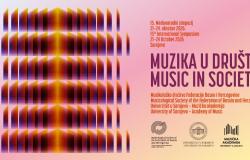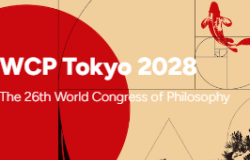Two-day Content and Language Integrated Learning (CLIL) Workshop at the Faculty of Philosophy

A two-day workshop Content and Language Integrated Learning (CLIL) —A Pluriliteracies Approach to Teaching for Learning was held at the UNSA Faculty of Philosophy (NIRSA Center) on 8-9 November 2019.
UNSA Faculty of Philosophy English Studies Department at the and the Association of Anglicists in BiH (DAuBiH) with the support of the European Center for Contemporary Languages and the Ministry of Education, Science and Youth of Canton Sarajevo successfully organized specialized training for 22 university teachers and associates engaged in the teaching process at English departments at public and private universities across Bosnia and Herzegovina.
At the beginning of the workshop, a moment of silence was held for esteemed professor Marijana Sivrić (Faculty of Philosophy, University of Mostar). The attendees were addressed by Doz. Dr. Amir Duranović, Vice-Dean for Scientific Research, International Academic Cooperation and Publishing, and Head of the English Department, Prof. Dr. Amira Sadiković.
During the seminar held in the digital environment, it was extremely important to emphasize it was about the application of CLIL methodology of integrated learning, lecturers and educators from the Council of Europe's European Center for Contemporary Languages, who have been engaged in long-term practice in integrated learning research. Kevin Schuck (The Netherlands) and Letizia Cinganotto (Italy) presented the participants with state-of-the-art teaching methods in English.
The applying the CLIL methodology in teaching English at universities has been little explored, not only in Bosnia and Herzegovina, but also in neighboring countries. The focus of the activities that took place over the workshop course was on the use of a foreign language as a tool for learning different content (CLIL), and the research project aims to provide initial training to teachers who integrate content and language integratedly. In this way, CLIL offers the possibility of a holistic approach to teaching, with particular attention being paid to the intercultural and professional development of teachers and associates. First training is particularly important because users are in a position to be multipliers through their regular activities focused on lifelong learning and improvement.
In this way, successful international cooperation continues between the Council of Europe's European Center for Contemporary Languages, the Faculty of Philosophy of the University of Sarajevo and the NIRSA Center.

























